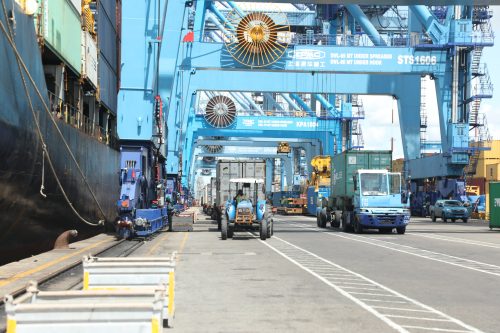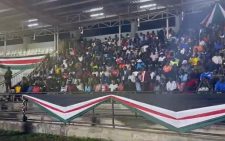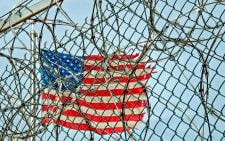KRA sets conditions for shipping of cargo to Zanzibar and Pemba

The Kenya Revenue Authority (KRA) on Tuesday, April 29, 2025, issued a set of new conditions for cargo heading to Zanzibar and Pemba.
In a notice published in the MyGov publication, KRA indicated that the new rules would come into force after a seven-year ban on the stripping of containers destined for the two islands was lifted.
KRA announced the reintroduction of stripping, which is destuffing containerised cargo, after putting in place measures to curb smuggling, where containers were diverted in the ocean before finding their way into the East African Community (EAC) market.
The ban was imposed in 2018. Before the ban, cargo destined for Zanzibar was being redirected to ports closer to the destination, such as Dar es Salaam, Tanga, or Zanzibar itself, under a different manifest.
In November 2022, the Tanzania Revenue Authority (TRA) wrote to KRA requesting a review of the ban on stripping to facilitate their importers in Zanzibar and Pemba to use the Port of Mombasa.

“On 21st February, 2018, Kenya Revenue Authority (KRA), through a Press Release, banned the stripping of containers destined for Zanzibar and Pemba in the United Republic of Tanzania on the request of the Tanzania Revenue Authority in its letter dated 28th December, 2017,” KRA explained.
“By a letter dated 29th November, 2022, the Tanzania Revenue Authority wrote to Kenya Revenue Authority requesting for the review of the ban on stripping to facilitate importers based in Zanzibar and Pemba to be able to tranship their goods from the Port of Mombasa,” the taxman added.
Conditions
In the latest notice, KRA detailed that goods from the Port of Mombasa have to be entered under the Single Customs Territory Framework (SCT) in Zanzibar (Port) before they are allowed to be shipped to the islands.
The shipments are to be cleared under SCT arrangement on duty duty-paid basis and verified by Tanzania Revenue Authority officers stationed in Mombasa before stripping and shipment, KRA further explained.

“Kenya Revenue Authority enforcement officers are to supervise the stripping and loading of the cargo in the Port of Mombasa before shipment,” the notice further stipulated.
Defending the new set of rules, KRA noted that they are meant to bring clarity and require all stakeholders involved in this process to strictly adhere and comply with the conditions to avoid any inconveniences.
“KRA will continue to liaise with the Kenya Ports Authority (KPA) to ensure that standard operating procedures and best practices on transhipment are implemented to protect and facilitate legitimate business.”

Before the ban, the volumes of cooking oil and other foodstuffs destined for Pemba and Zanzibar surpassed the consumption capacity of the two islands as a result of cargo diversion and smuggling.
To avert cargo diversion and control stripping, the KRA has prohibited changing the status of goods through manifest amendments. The taxman said goods from the port of Mombasa have to be entered under the Single Customs Territory Framework (SCT) in Zanzibar before they are allowed into the islands.















